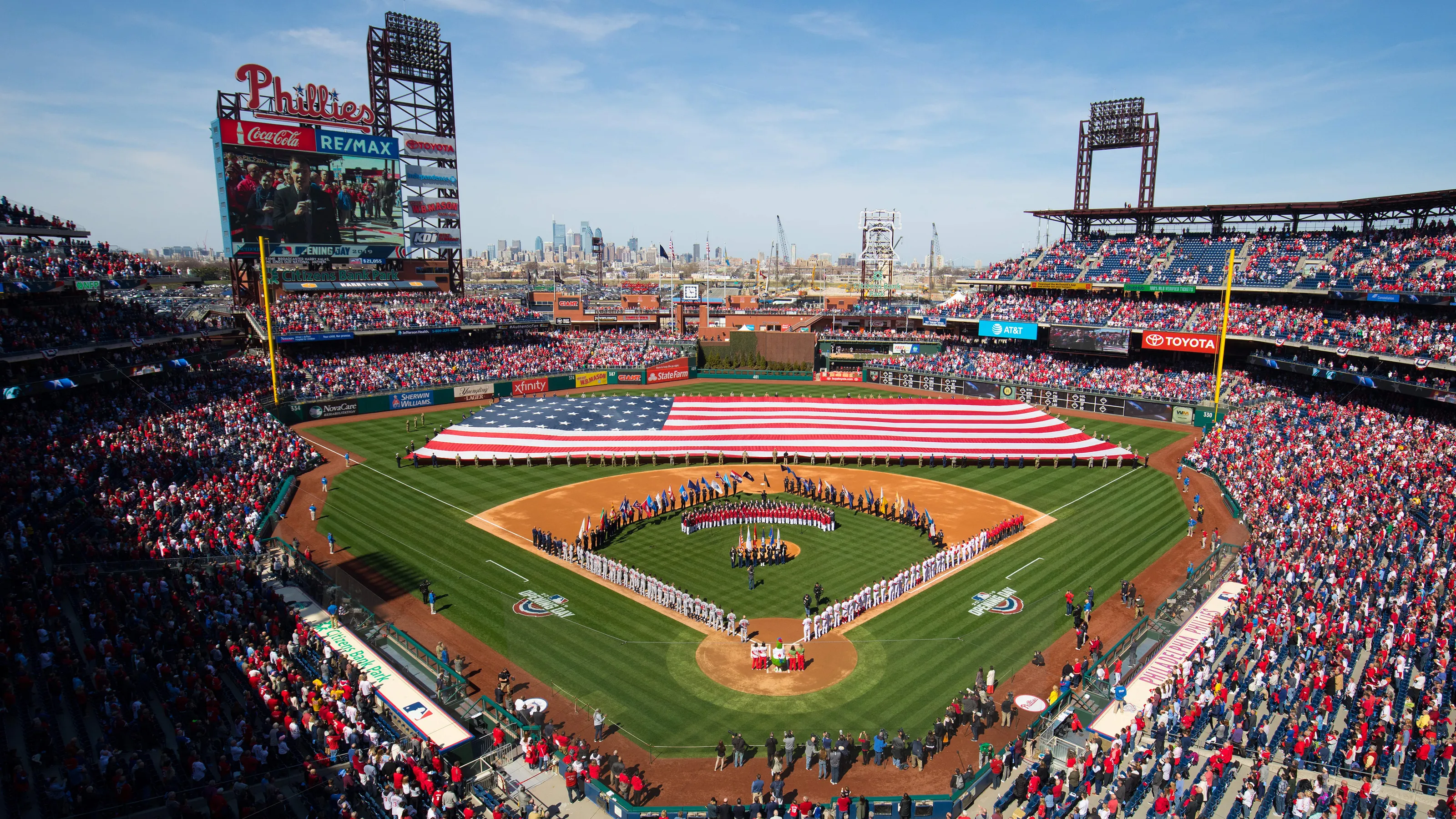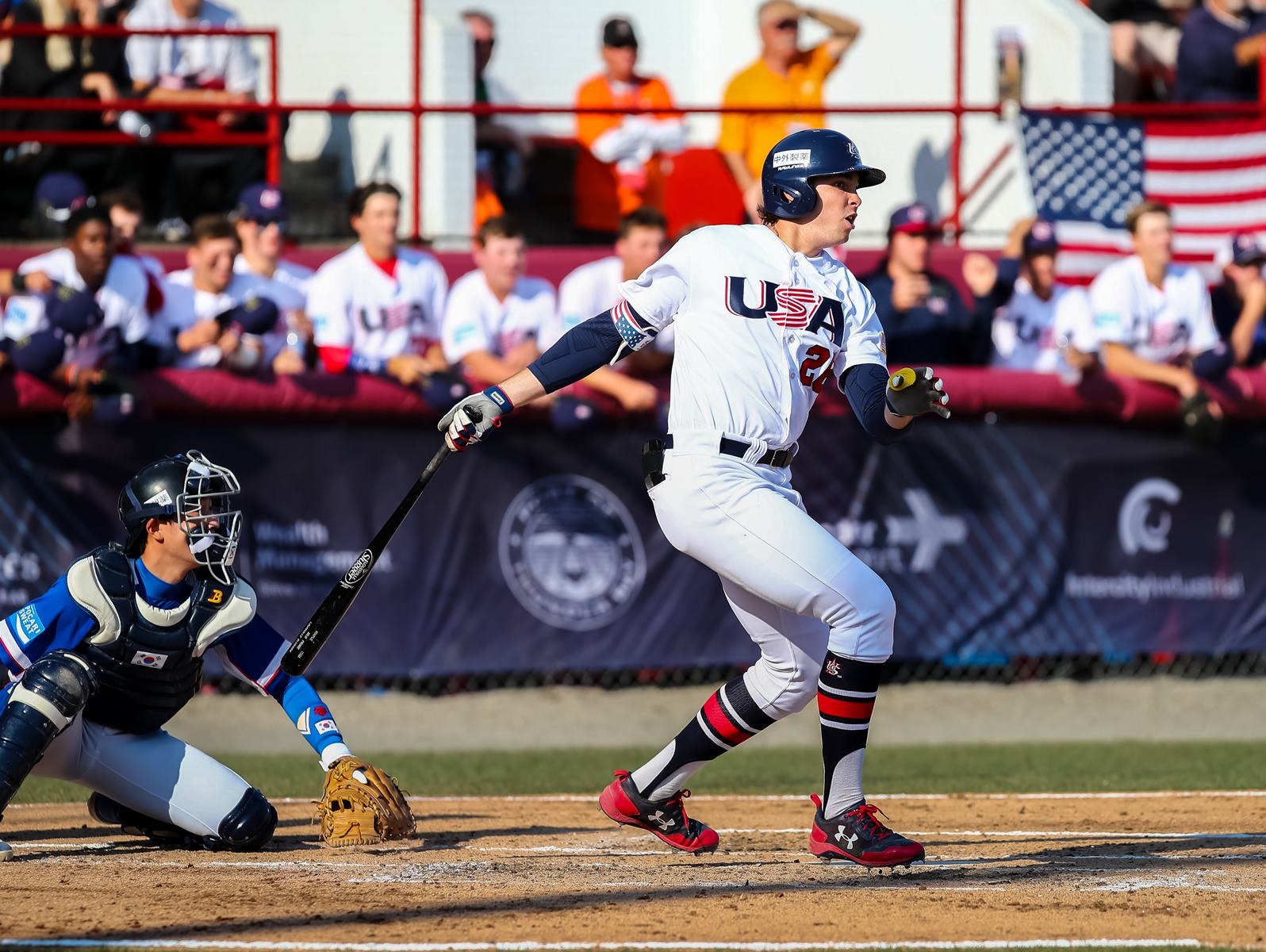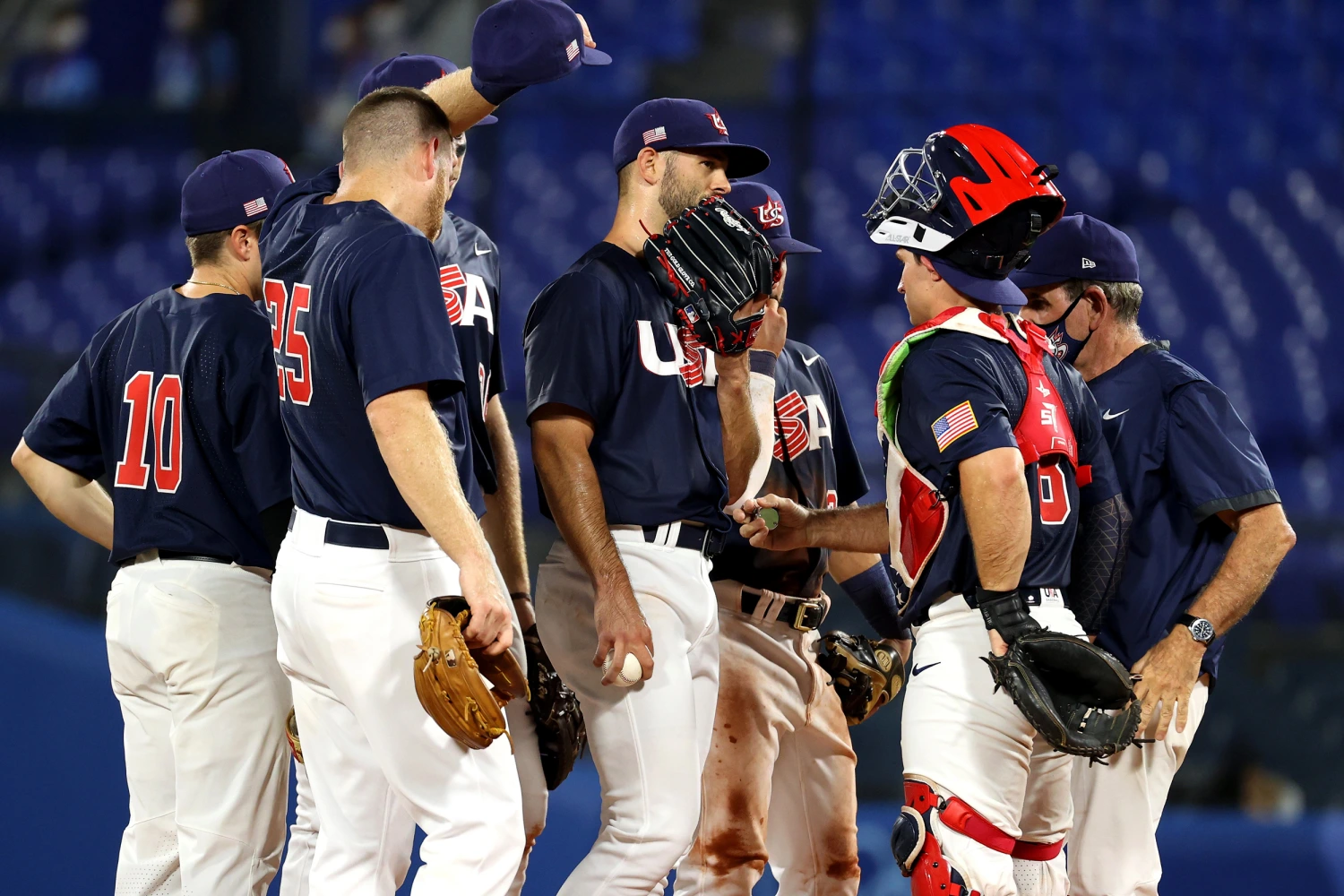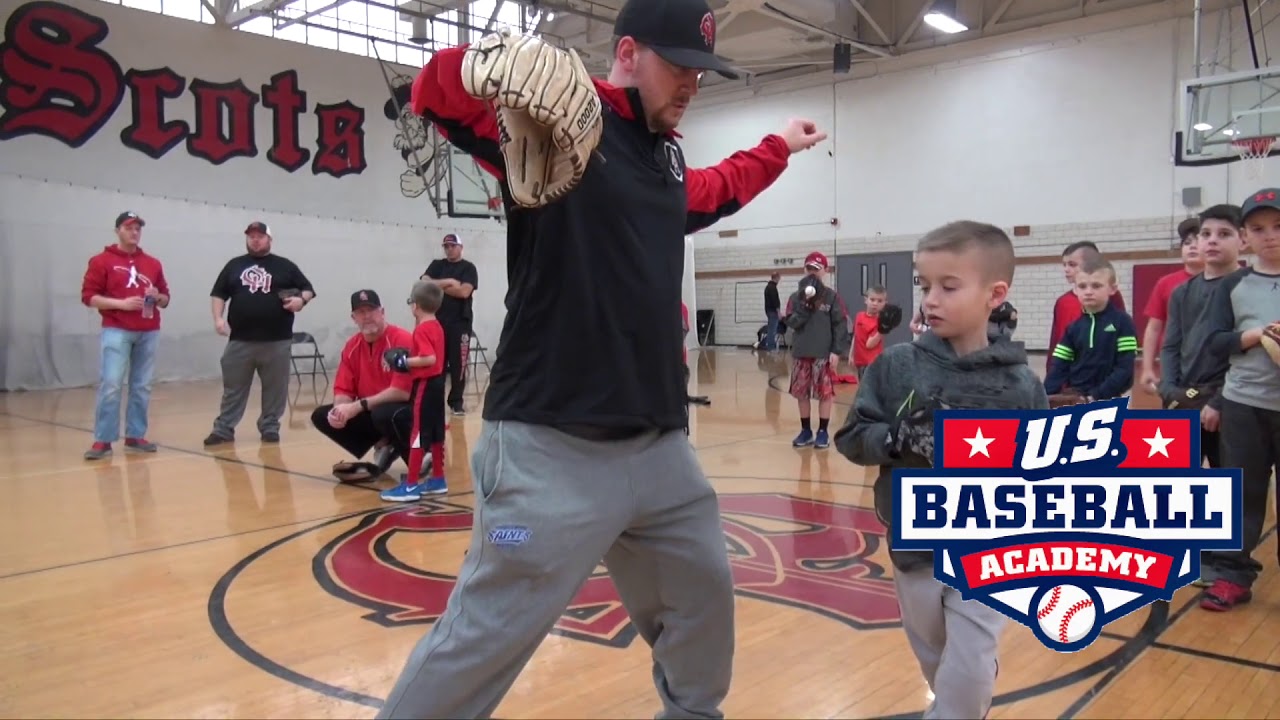The Grand Slam Of American Pastimes - The Importance Of MLB In The USA
In this article, we'll explore them importance of MLB in the United States, from its rich history to its cultural impact, economic contributions, and community engagement.
Author:Gabriel MartinezSep 01, 2023350 Shares87.5K Views

Major League Baseball (MLB) is more than just a sport; it's a quintessential American institution that holds a special place in the hearts of millions. As the crack of the bat and the roar of the crowd echo through stadiums across the nation, MLB embodies the spirit of America.
In this article, we'll explore them importance of MLBin the United States, from its rich history to its cultural impact, economic contributions, and community engagement.
The Evolution Of MLB - From Baseball War To World Series
The history of Major League Baseball (MLB) is a tale of rivalry, adaptation, and the eventual creation of enduring traditions that have become integral to the sport. Here, we delve deeper into the historical journey that brought the National League (NL) and the American League (AL) together and led to the birth of the World Series.
The Birth Of Rivalry
The NL and the AL were born as independent organizations in the late 19th century, each with its own set of teams and ambitions. This initial period marked the beginning of a fierce rivalry that would later become known as the "baseball war." The AL, predominantly based in the Midwest, set its sights on expanding into the established NL territory along the East Coast. In their quest for supremacy, the AL also managed to lure away star playersfrom NL squads, intensifying the competition.
The Truce And The Birth Of The World Series
The rivalry reached its peak, and baseball fans clamored for a definitive showdown between the two leagues. In 1903, both leagues recognized the need for a resolution and established a truce that forever altered the landscape of professional baseball. This agreement culminated in the creation of the World Series, an annual championship matchup that pitted the respective winners of the NL and the AL against each other. This groundbreaking event not only crowned a national champion but also captivated the imagination of fans, establishing the World Series as a pivotal moment in the baseball calendar.
The National Commission And The Emergence Of A Single Commissioner
To ensure fair play and cooperation between the two leagues, the NL and the AL established the National Commission. This three-man governing body was tasked with overseeing Major League Baseball's operations, acting as a mediator in disputes and making crucial decisions. However, as the sport continued to evolve, the need for a more centralized authority became evident.
In 1921, MLB underwent a significant transformation when it replaced the National Commission with a single commissioner of baseball. This change brought a unified leadership to the league, streamlining decision-making processes and further solidifying the organization's structure.
The inaugural commissioner, Kenesaw Mountain Landis, played a pivotal role in shaping MLB's future. He addressed critical issues such as the Black Sox Scandal of 1919, where members of the Chicago White Sox were accused of intentionally losing the World Series for financial gain. Landis's firm stance in banning the implicated players demonstrated the league's commitment to upholding its integrity and fair play.
MLB - A Cultural Unifier
Major League Baseball (MLB) holds a unique position in American society, far beyond its status as a mere sport. It serves as a powerful unifying force, bringing together individuals from diverse backgrounds and transcending boundaries of race, ethnicity, and socioeconomic status.
Embracing Diversity
One of MLB's most striking attributes is its ability to foster diversity and inclusion. Ballparks across the nation become vibrant melting pots of cultures and backgrounds. Fans, regardless of their backgrounds, gather shoulder to shoulder, driven by a common love for the game and their favorite teams. In these hallowed stadiums, a shared passion for baseball transcends differences, creating a sense of camaraderie that extends far beyond the ballpark's confines.
The Glue Of Communities
MLB teams often become an integral part of their respective communities. They provide a sense of identity and pride for the people they represent. Whether it's the New York Yankees, the Los Angeles Dodgers, or the Boston Red Sox, these teams are more than just athletic organizations; they are cultural symbols that bind communities together. The victories and defeats of these teams resonate deeply with fans, fostering a sense of belonging and shared experiences.
Tradition And Nostalgia
The Seventh-Inning Stretch
MLB's enduring traditions and rituals contribute significantly to its cultural significance. One of the most beloved traditions is the singing of "Take Me Out to the Ballgame" during the seventh-inning stretch. This simple act, where fans rise to their feet and sing along, is a cherished moment that transcends generations. It's a time-honored tradition that connects fans with the past while creating new memories.
The Ceremonial First Pitch
Another iconic ritual in baseball is the ceremonial first pitch. Whether it's a former player, a celebrity, or a local hero, the act of throwing the first pitch symbolizes the opening of a new chapter in the game's history. It's a moment of anticipation and excitement that captures the essence of baseball's enduring appeal.
In conclusion, MLB's cultural significance extends far beyond the diamond. It serves as a unifying force, bringing together people of all backgrounds and providing a sense of community and pride. The sport's traditions and rituals, such as the seventh-inning stretch and the ceremonial first pitch, evoke a powerful sense of nostalgia and continuity that resonates with fans young and old. As we celebrate the rich tapestry of American culture, MLB remains a cherished and integral part of the nation's identity.
MLB - An Economic Powerhouse
Beyond its cultural significance, Major League Baseball (MLB) exerts a substantial economic impact on the United States, generating a significant number of jobs and stimulating local economies.
Job Creation
The economic influence of MLB extends well beyond the players themselves. It serves as a catalyst for job creation across various sectors. Stadiums, which host tens of thousands of fans during each game, require an extensive workforce to ensure smooth operations. This includes ushers, ticket takers, concessions staff, security personnel, and maintenance crews. Beyond game days, stadiums also host events, further increasing the demand for staff in various roles.
In addition to those directly employed by MLB and its teams, the sport generates employment opportunities in related industries. Broadcasters and media companies cover games, providing jobs for journalists, camerapersons, technicians, and production crews. Merchandise vendors, from official team shops to independent retailers, employ staff to meet the demand for jerseys, hats, and other fan gear.
Furthermore, the economic impact ripples through the supply chain, benefiting manufacturers, transportation companies, and countless other businesses. The sport's expansive reach results in livelihoods for many individuals and families, making MLB a significant contributor to the nation's job market.
Tourism And Local Businesses
Baseball has a unique ability to draw fans from all corners of the country, fostering a vibrant ecosystem around stadiums. Fans often embark on long-distance journeys to watch their favorite teams play in person. This influx of visitors significantly boosts local economies in the areas surrounding ballparks.
Restaurants, bars, and hotels near stadiums experience increased patronage, especially on game days. Local businesses cater to the needs and desires of fans, offering a variety of dining and entertainmentoptions. This surge in business creates a symbiotic relationship between the sport and local establishments, reinforcing the idea that baseball is more than just a game; it's a cultural event that drives economic growth.
Moreover, businesses catering to the tourism industry, such as tour operators and transportation services, benefit from the influx of out-of-town fans. These businesses provide essential services to visitors, making the game-day experience more accessible and enjoyable.
A Source Of National Pride
Major League Baseball(MLB) serves as a source of immense national pride for the United States, showcasing American talent on a global stage and commemorating iconic moments that have left an indelible mark on the nation's history.
International Representation
MLB provides a platform for American baseball players to display their skillsand compete on an international level. Events like the World Baseball Classic (WBC) offer a unique opportunity for players to proudly wear their country's uniform and represent the United States. The WBC, held every four years, brings together teams from around the world in a spirited competition.
The participation of American players in the WBC not only reinforces the country's prowess in the sport but also fosters a profound sense of national pride. Fans from coast to coast rally behind their homegrown heroes as they compete against the best baseball talent from other nations. This global stage highlights the excellence of American baseball and reinforces the nation's status as a powerhouse in the sport.
Historic Moments
MLB's history is replete with iconic moments that have become integral parts of American folklore. These moments transcend the boundaries of the baseball diamond and hold a special place in the nation's collective memory.
For instance, Babe Ruth's legendary "called shot" during the 1932 World Series at Wrigley Field is etched in baseball history. The Babe's audacious gesture, pointing to the outfield before hitting a home run, captured the imagination of fans and became a symbol of American confidence and swagger during the Great Depression.
Jackie Robinson breaking the color barrier in 1947 when he became the first African American to play in MLB profoundly impacted not just the sport but also American society as a whole. Robinson's courage and resilience in the face of racial prejudice paved the way for greater racial equality and diversity in the United States.
These historic moments in MLB history resonate far beyond baseball enthusiasts. They are woven into the fabric of American culture, symbolizing perseverance, excellence, and the pursuit of equality. They serve as powerful reminders of the broader societal changes that have occurred and continue to evolve in the nation.
The Global Reach Of MLB
Broadcasting And Streaming
One of the primary ways MLB connects with international audiences is through its broadcasting and streaming services. MLB games are broadcast in over 200 countries, making it one of the most widely watched sports leagues globally. Fans from countries as diverse as Japan, the Dominican Republic, and South Korea tune in to catch the action, creating a global community of baseball aficionados.
International Players
MLB boasts a roster of international talent, with players hailing from various countries. Foreign-born players have made significant contributions to their teams and the league as a whole. Icons like Ichiro Suzuki from Japan, Albert Pujols from the Dominican Republic, and Hideo Nomo from Japan have left indelible marks on the sport and served as inspirations to young athletesworldwide.
Fostering International Fandom
Baseball Academies
MLB invests in baseball academies and development programs in countries like the Dominican Republic, Venezuela, and China. These academies serve as breeding grounds for young talent, providing coaching, education, and a pathway to the big leagues. This investment in international talent development not only strengthens the league but also fosters goodwill and appreciation for the sport.
Global Events
MLB organizes international events that bring nations together in the spirit of competition. The World Baseball Classic (WBC), for example, is a premier international baseball tournament that showcases top talent from around the world. It provides fans with a unique opportunity to witness their homegrown heroes compete on a global stage.
The Impact On Foreigners
Cultural Exchange
For foreigners, following MLB provides a window into American culture and society. Through the sport, fans learn about American cities, traditions, and values. They also forge connections with American fans, creating a sense of cultural exchange that transcends borders.
Betting On MLB
One significant way in which foreigners engage with MLB is through sports betting. The excitement of wagering on games has made MLB a favorite among bettors globally. If you're interested in exploring the world of sportsbetting in the United States, you can check out this legal sports betting guidefor valuable insights and information.
People Also Ask
Why Is The MLB So Important?
- Cultural Significance:MLB is deeply ingrained in American culture, often referred to as "America's pastime." It carries a rich history and traditions that resonate with fans across generations.
- Economic Impact:The MLB is a significant economic driver, creating jobs, boosting local economies, and contributing to various related industries, including broadcasting, tourism, and merchandise.
- Community Engagement:MLB teams and players are actively involved in community initiatives and philanthropy, using their platform to address social issues and give back to the communities that support them.
- National Pride:MLB showcases American talent on a global stage, reinforcing the country's prowess in the sport and fostering a sense of national pride.
- Entertainment and Unity:MLB games bring people from diverse backgrounds together, providing a shared source of entertainment and fostering unity, transcending barriers of race, ethnicity, and socioeconomic status.
What Are The Benefits Of Being In The MLB?
- Financial Rewards:MLB players earn substantial salaries, and top talent can sign lucrative contracts. This financial security extends to coaches, staff, and team ownership.
- Global Recognition:MLB is a global brand, and its players enjoy international recognition and fame. This can lead to endorsement deals and other opportunities.
- Competitive Excellence:MLB provides a platform for athletes to compete at the highest level of professional baseball, pushing them to excel and realize their potential.
- Community Impact:Players and teams have the chance to make a positive impact in their communities through charitable work, events, and initiatives.
- Development and Growth:For young talent, MLB's developmental system offers coaching, training, and a pathway to the major leagues.
What Are The Responsibilities Of The MLB?
- Maintaining Integrity:The MLB must uphold the integrity of the sport, ensuring fair play, enforcing rules, and investigating any misconduct or violations.
- Promoting the Sport:The league is responsible for promoting baseball, expanding its fan base, and increasing participation at all levels, from youth leagues to the major leagues.
- Labor Relations:MLB manages labor relations with players, coaches, and other personnel, negotiating contracts and resolving disputes.
- Community Engagement:The league and its teams engage in various community and philanthropic efforts to support social causes and make a positive impact on society.
- Global Presence:MLB has a role in promoting baseball internationally, organizing events like the World Baseball Classic and supporting the development of the sport in other countries.
- Financial Stewardship:MLB must manage its finances responsibly, ensuring the long-term sustainability of the league and its teams.
- Innovation and Adaptation:The league is responsible for staying relevant by embracing technology, implementing rule changes when necessary, and adapting to the evolving landscape of professional sports.
Conclusion
Major League Baseball's importance in the United States extends far beyond the confines of the baseball diamond. It serves as a cultural touchstone, an economic powerhouse, a community builder, and a source of national pride. As fans young and old gather in stadiums across the country, they celebrate not just a sport but an enduring tradition that embodies the spirit of America itself. So, when you hear the crack of the bat and the cheers of the crowd, remember that it's not just a game; it's a testament to the enduring significance of MLB in the USA.

Gabriel Martinez
Author
Gabriel Martinez is a respected author at Tennessee Independent, renowned for his expertise in covering News and Sports topics. With a comprehensive understanding of current events and a knack for delivering accurate and engaging content, Gabriel provides readers with insightful analysis and compelling narratives. His dedication to factual accuracy and commitment to delivering authoritative content make him a trusted source for news and sports enthusiasts on Tennessee Independent.
Latest Articles
Popular Articles


